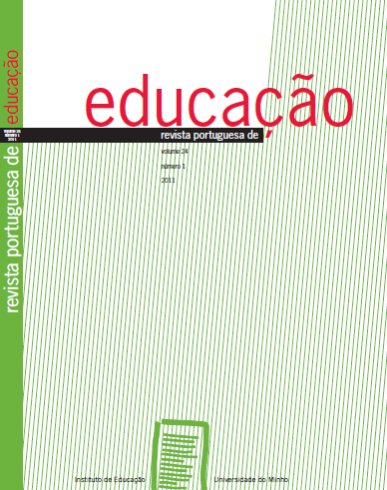A SOCIOLOGICAL APPROACH ON EFFECTIVENESS OF THE TEACHER, IN THE PROCESS OF LEARNING SCIENCE
DOI:
https://doi.org/10.21814/rpe.3040Abstract
We analyse in this article, in sociological terms, in an approach close to the methodology of process-product, the extent to which certain fundamental characteristics of the teacher, determine the strategies for study of its students and their achievement in science. We worked with a sample of twenty-four teachers and their 651 students, representing the schools of the Municipality of Olhão, Distrito de Faro. The results indicate that the kind of relationship that teachers establish with their students is fundamental to understand their results, with the highest levels of relationalship producing the most beneficial results from the students. The relational dimension however, is insufficient per
se to establish an effective pedagogical practice. In fact, disciplinary regulations are fundamental and, somehow, they constitute a pre-condition to that efficacy. Guaranteed this relational and normative context, debating in the classroom, with extensive participation of students, is another key element to be mentioned in relation to teacher effectiveness.
Keywords
Scientific learning; Learning strategies for science; Teacher effectiveness
Downloads
Downloads
How to Cite
Issue
Section
License
1. The authors preserve their authorship and grant the Portuguese Journal of Education the right to the first publication. The work is licensed under Creative Commons Attribution License that allows sharing the work with the acknowledgment of initial authorship and publication in this Journal.
2. The authors have the right to take additional contracts separately, for non-exclusive distribution of the published version of their work (e.g. to deposit in an institutional repository or as a book chapter), acknowledging the initial authorship and publication in this Journal.
3. The authors have the permission and are stimulated to post their work online (e.g. in an institutional repository or on their personal website). They can do this at any phase of the editorial process, as it may generate productive changes, as well as increase impact and article citation (see The Open Citation Project).
The work is licensed under Attribution-ShareAlike 4.0 International (CC BY-SA 4.0)




















